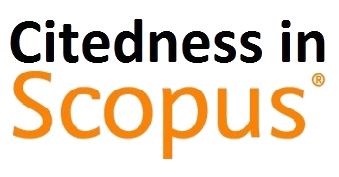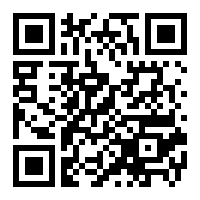- Focus and Scope
- Section Policies
- Peer Review Process
- Publication Frequency
- Open Access Policy
- Publication Ethics
Focus and Scope
• Artificial Immune Systems, Ant Colonies, and Swarm Intelligence
• Autonomous Agents and Multi-Agent Systems
• Bayesian Networks and Probabilistic Reasoning
• Biologically Inspired Intelligence
• Brain-Computer Interfacing
• Business Intelligence
• Chaos theory and intelligent control systems
• Clustering and Data Analysis
• Complex Systems and Applications
• Computational Intelligence and Soft Computing
• Cognitive systems
• Distributed Intelligent Systems
• Database Management and Information Retrieval
• Evolutionary computation and DNA/cellular/molecular computing
• Expert Systems
• Fault detection, fault analysis and diagnostics
• Fusion of Neural Networks and Fuzzy Systems
• Green and Renewable Energy Systems
• Human Interface, Human-Computer Interaction, Human Information Processing
• Hybrid and Distributed Algorithms
• High Performance Computing
• Information storage, security, integrity, privacy and trust
• Image and Speech Signal Processing
• Knowledge Based Systems, Knowledge Networks
• Knowledge discovery and ontology engineering
• Machine Learning, Reinforcement Learning
• Memetic Computing
• Multimedia and Applications
• Networked Control Systems
• Neural Networks and Applications
• Natural Language Processing
• Optimization and Decision Making
• Pattern Classification, Recognition, speech recognition and synthesis
• Robotic Intelligence
• Rough sets and granular computing
• Robustness Analysis
• Self-Organizing Systems
• Social Intelligence
• Soft computing in P2P, Grid, Cloud and Internet Computing Technologies
• Stochastic systems
• Support Vector Machines
• Ubiquitous, grid and high performance computing
• Virtual Reality in Engineering Applications
• Web and mobile Intelligence, and Big Data
Section Policies
Articles
Peer Review Process
Articles published on IJISTECH have been reviewed by at least 1 reviewer using double-blind method. Pre-review articles will be conducted to check the articles’ page, pictures, table, citation, and reference list format along with articles’ chaptering systems. Plagiarism checking is also conducted through Google Scholar and Turnitin.
The review period is 4-8 weeks. If necessary, reviewers may ask another review after the authors revise the articles. The decisions belong to Editor-In-Chief based on the reviewers’ recommendation.
Publication Frequency
IJISTECH is published 6 (six) times a year, in June, August, October, December, February, and April.
Open Access Policy
IIJISTECH is one of the community partners for research. We are committed to promoting Publication Ethics at IIJISTECH. Publishing scientific information depends heavily on trust. The editor believes that peer reviewers can maintain confidentiality and effective judgement, the author trusts the editor to choose colleagues, and readers trust the peer-review process. Appropriate decisions and strong editorial processes will encourage efficient publishing systems. this will benefit the scientific community, editors, writers, research scientists, research sponsors, readers, and publishers.
Publication Ethics
Section A: Publication and authorship
- All submitted papers are subject to strict peer-review process by at least two international reviewers that are experts in the area of the particular paper.
- Review process are blind peer review.
- The factors that are taken into account in review are relevance, soundness, significance, originality, readability and language.
- The possible decisions include acceptance, acceptance with revisions, or rejection.
- If authors are encouraged to revise and resubmit a submission, there is no guarantee that the revised submission will be accepted.
- Rejected articles will not be re-reviewed.
- The paper acceptance is constrained by such legal requirements as shall then be in force regarding libel, copyright infringement and plagiarism.
- No research can be included in more than one publication.
Section B: Authors’ responsibilities
- Authors must certify that their manuscripts are their original work.
- Authors must certify that the manuscript has not previously been published elsewhere.
- Authors must certify that the manuscript is not currently being considered for publication elsewhere.
- Authors must participate in the peer review process.
- Authors are obliged to provide retractions or corrections of mistakes.
- All Authors mentioned in the paper must have significantly contributed to the research.
- Authors must state that all data in the paper are real and authentic.
- Authors must notify the Editors of any conflicts of interest.
- Authors must identify all sources used in the creation of their manuscript.
- Authors must report any errors they discover in their published paper to the Editors.
Section C: Reviewers’ responsibilities
- Reviewers should keep all information regarding papers confidential and treat them as privileged information.
- Reviews should be conducted objectively, with no personal criticism of the author
- Reviewers should express their views clearly with supporting arguments
- Reviewers should identify relevant published work that has not been cited by the authors.
- Reviewers should also call to the Editor in Chief’s attention any substantial similarity or overlap between the manuscript under consideration and any other published paper of which they have personal knowledge.
- Reviewers should not review manuscripts in which they have conflicts of interest resulting from competitive, collaborative, or other relationships or connections with any of the authors, companies, or institutions connected to the papers.
Section D: Editors’ responsibilities
- Editors have complete responsibility and authority to reject/accept an article.
- Editors are responsible for the contents and overall quality of the publication.
- Editors should always consider the needs of the authors and the readers when attempting to improve the publication.
- Editors should guarantee the quality of the papers and the integrity of the academic record.
- Editors should publish errata pages or make corrections when needed.
- Editors should have a clear picture of a research’s funding sources.
- Editors should base their decisions solely one the papers’ importance, originality, clarity and relevance to publication’s scope.
- Editors should not reverse their decisions nor overturn the ones of previous editors without serious reason.
- Editors should preserve the anonymity of reviewers.
- Editors should ensure that all research material they publish conforms to internationally accepted ethical guidelines.
- Editors should only accept a paper when reasonably certain.
- Editors should act if they suspect misconduct, whether a paper is published or unpublished, and make all reasonable attempts to persist in obtaining a resolution to the problem.
- Editors should not reject papers based on suspicions, they should have proof of misconduct.
- Editors should not allow any conflicts of interest between staff, authors, reviewers and board members.












